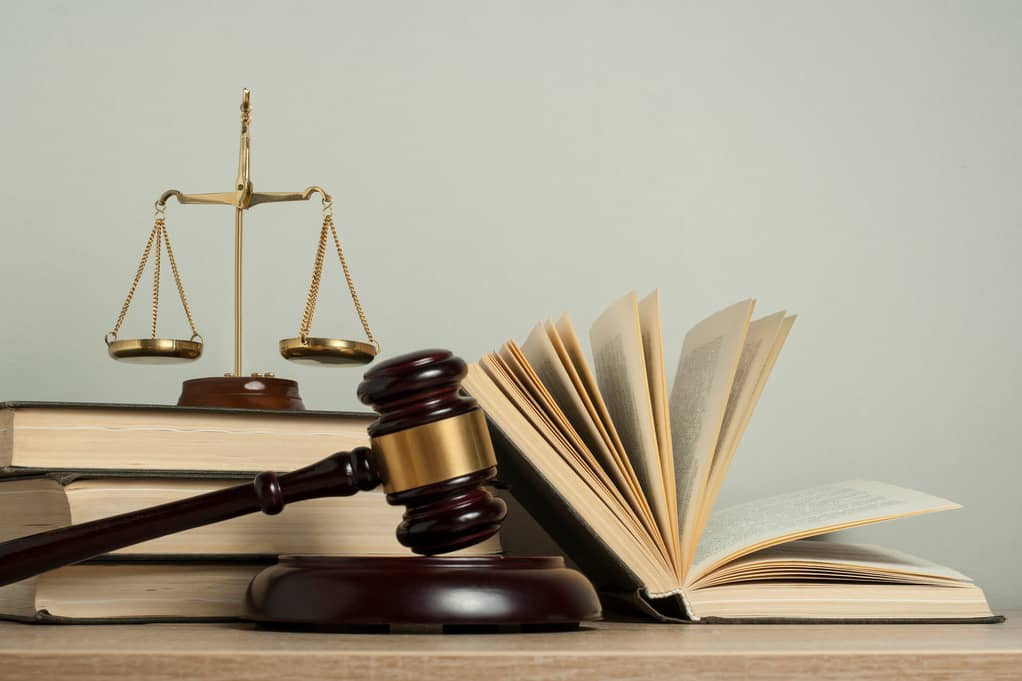Under Section 216 of the Child Pornography and Exploitation Material and Classification Legislation Amendment Act 2010, a child is legally defined as a person under the age of 16. The law also criminalises the possession, distribution, and production of child exploitation material, which includes child pornography and any material that depicts, describes, or represents a child in an offensive or demeaning context.
What is Considered “Material”?
Under Section 216, “material” includes any form of content capable of displaying, storing, or reproducing exploitative content. This covers:
- Objects, images, films, written or printed material, data, or any other medium.
- Any item from which text, pictures, sound, or data can be extracted, with or without technology.
These offences carry severe legal penalties, with imprisonment of up to 10 years for distribution or production and up to 7 years for possession (Sections 218, 219, and 220).

What is Child Exploitation Material?
Under Section 216 of the Child Pornography and Exploitation Material and Classification Legislation Amendment Act 2010, child exploitation material refers to any content that depicts or describes a child in a manner that is likely to offend a reasonable person. This includes material that portrays a child in a demeaning, offensive, or abusive context, whether or not the depiction is of a real child.
Key elements of child exploitation material include:
- Child pornography, which involves a child engaging in sexual activity or being presented in a sexual context (Section 216).
- Material that represents a child being subjected to abuse, cruelty, or torture, regardless of whether the context is sexual (Section 216).
Offences and Penalties Involving Child Exploitation Material
A person found guilty of offences related to child exploitation material under Sections 217–220 faces severe legal consequences, including imprisonment of up to 10 years for production or distribution and up to 7 years for possession.
Involving a Child in Exploitative Material
A person commits a crime if they ask, persuade, force, or offer a child to take part in the creation of exploitative material.
- Penalty: Up to 10 years’ imprisonment (Section 217(1) & (2)).
Production and Distribution of Exploitative Material
It is illegal to create, contribute to, or share child exploitation material in any form. Possessing such material with the intent to distribute is also a crime.
- Production Penalty: Up to 10 years’ imprisonment (Section 218).
- Distribution Penalty: Up to 10 years’ imprisonment (Sections 219(1), (2), and (3)).
Possession of Exploitative Material
A person found in possession of child exploitation material, regardless of intent, commits an offence.
Penalty: Up to 7 years’ imprisonment (Section 220).
Defences to a Charge Under Sections 217–220
Limited defences are available under Sections 217–220. A person may have a defence if they can prove:
- The material was legally classified under the Classification (Publications, Films and Computer Games) Act 1995 (Cth) and was not refused classification (Section 221A(1)(a)).
- They did not know and could not reasonably have known the material depicted a child in an exploitative manner (Section 221A(1)(b)).
- The material had genuine literary, artistic, scientific, or medical merit, and its possession was justified for the public good (Section 221A(1)(c)).
- They were acting for a legitimate child protection or legal purpose, and their actions were reasonable (Section 221A(1)(d)).
Possession of Unsolicited Material
A person charged under Section 220 may have a defence if they can prove:
- The material was received unsolicited, and
- They took reasonable steps to dispose of it upon recognising its nature (Section 221A(2)).
Exemptions for Law Enforcement and Classification Officials
Law enforcement officers and classification officials handling such material as part of their official duties are exempt (Section 221A(3)).
Given the severity of these offences, seeking legal advice at the earliest opportunity is essential.


Seek Legal Advice if You Have Been Charged
If you have been charged under Section 321A of the Criminal Code (WA), it is important to seek legal advice as soon as possible. These offences carry serious legal consequences, and understanding your rights and options early can make a difference in how your case is handled.
At WN Legal, we take a practical and thorough approach to your matter. We will carefully review the allegations, assess the evidence, and provide you with clear guidance on your legal position.
Our legal team can assist you with:
- Reviewing the strength of the case against you.
- Advising on possible outcomes and what to expect.
- Exploring defences that may be available to you.
- Guiding you through the court process and next steps.
Understanding your legal options can help you move forward with confidence. Contact WN Legal today for confidential legal advice.
Kryan & Khew are extremely compassionate and professional. They are very thorough and don’t miss anything, I was super impressed with their genuine personalities while they remained professional and businesslike throughout my dealing with them. I would not hesitate to recommend my family, friends, and business clients to them.
I was recently charged with aggravated common assault. WN Legal represented me from day one till the case was finalized. They are affordable, professional, knowledgeable, and sensitive. They kept me updated on the progress of the case. Despite the seriousness of the charge the outcome was the best I could expect – a fine and spent conviction. I would recommend WN Legal for all your legal problems.
“Khew and Aimee were both so amazing and helpful, Khew ran through everything to make sure we understood everything that had to happen and how things would work. I had Aimee with me on the big day and she was super kind and made you feel so comfortable like a best friend was with you, no nerves at all! She even walked me to the car to make sure I was safe, and we came away with a positive outcome 😀 win-win defiantly recommend this company 5 stars.”
“WN Legal are far superior to any legal firm we have dealt with before and they have set the bar so high we doubt we will ever find a legal firm as dedicated and professional.
We dealt mainly with Kyran who was readily accessible and exceeded our expectations. We also found the rest of the team at WN legal to be just as helpful, friendly, and genuine.
We highly recommend WN Legal to anyone.
If we could leave a rating higher than 5 stars we would, Mark and Marina”
“Absolutely the best service. I was treated in a professional manner and when i was about to give up Khew turned around and said i am not ready to give up fighting for you yet. Some of the best words said to me in awhile. Thank you Khew for all your help and support i highly recommend this law firm.”
FAQs
What is child exploitation material?
Under Section 216, child exploitation material includes:
- Child pornography, which involves a child engaging in sexual activity or shown in a sexual context.
- Any material that depicts a child in a demeaning, offensive, or abusive manner, whether or not it is sexual.
This includes photos, videos, text, or any other medium that can display or reproduce such content.
What are the penalties for child exploitation material offences?
The penalties for offences under Sections 217–220 are severe:
- Involving a child in exploitative material – Up to 10 years’ imprisonment (Section 217).
- Producing exploitative material – Up to 10 years’ imprisonment (Section 218).
- Distributing exploitative material – Up to 10 years’ imprisonment (Section 219).
Possessing exploitative material – Up to 7 years’ imprisonment (Section 220).
What actions are considered an offence?
A person commits a crime if they:
- Ask, persuade, force, or offer a child to take part in the creation of exploitative material (Section 217).
- Create or contribute to the production of such material (Section 218).
- Send, sell, share, or make exploitative material available online or otherwise (Section 219).
- Possess child exploitation material, regardless of intent (Section 220).
Are there any legal defences?
Limited defences exist under Section 221A. A person may have a defence if they can prove:
- The material was classified under legal guidelines and not refused classification (Section 221A(1)(a)).
- They did not know and could not reasonably have known that the material contained exploitative content (Section 221A(1)(b)).
- The material had literary, artistic, scientific, or medical merit, and its possession was justified for the public good (Section 221A(1)(c)).
- They were acting in a legitimate child protection or legal role, and their actions were reasonable (Section 221A(1)(d)).
For possession offences, a defence may exist if the material was received unsolicited and the accused took immediate steps to dispose of it (Section 221A(2)).
Are there exemptions for law enforcement and classification officials?
Yes. It is not an offence for:
- Law enforcement officers handling such material as part of their official duties (Section 221A(3)(a)).
- Classification officials managing content under the Classification (Publications, Films and Computer Games) Act 1995 (Cth) (Section 221A(3)(b)).
What happens to seized material?
If a person is charged under Sections 217–220, the court may order the forfeiture of the material, even if the accused is not convicted (Section 221B).
What should I do If I am facing charges?
Given the serious legal consequences, it is crucial to seek legal advice as early as possible. Contact WN Legal today for confidential legal consultation.
Book An Appointment
We have online consultation available. Leave your enquiry below and a member of our friendly team will be touch shortly.
WN Legal – Perth’s Leading Law Firm
As a boutique practice, we provide highly personalised legal services to individuals looking to get a matter dealt with quickly and effectively by our lawyers.
Whether you’re facing charges or have just been informed by the Police that they want to “have a word with you”, you should know your rights and what they are looking to do with your case.
In most instances, your decision to make admissions can have a serious bearing on your matter. Our Perth lawyers are available to discuss your situation and your options.
